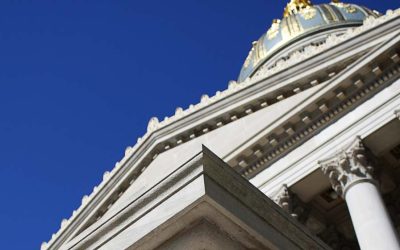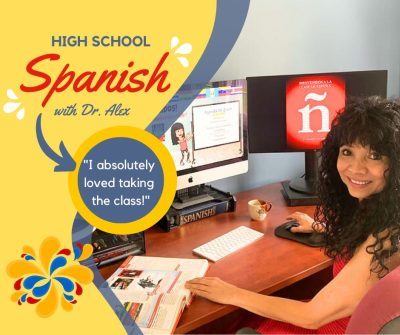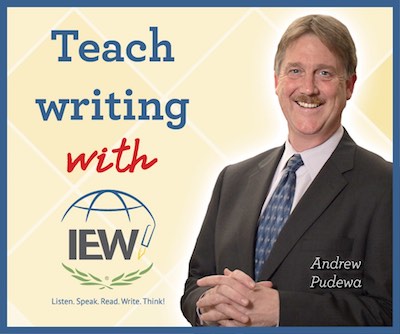Where Does Homeschooling Stand Now?
by John Carey, CHEWV’s Legislative Liaison
Prior to the 2017 WV Legislative Session, CHEWV decided it was time to step back and to give the legislature a break from homeschool legislation. We gratefully acknowledged the progress made in the last two regular sessions: the legislature had supported our efforts to advance no fewer than five homeschool bills through both the House and the Senate.
Our stepping back unexpectedly led to several homeschool-friendly legislators choosing to step up, actively encouraging their colleagues to support homeschool sports and vocational school legislation. As the session progressed, however, we witnessed the introduction of disturbing legislation designed to challenge our basic civil rights to educate our children and live out our faith. Needless to say, the CHEWV lobbying team was the one group at the legislature this session that never did get a break. What follows is my synopsis of the good, the bad, and the deplorable legislation, followed by a look at homeschooling’s future challenges.
HB 2196 – The Tim Tebow Bill
From the start, this bill was severely handicapped. While Senate Education Chair Mann allowed the Tim Tebow bill to advance through his committee, he refused to speak in support of the bill on the floor of the Senate. As it turned out, the Chair and the Governor gave their support to the Public School Virtual School Bill instead. By vetoing the Tim Tebow Bill, the Governor saw an opportunity to give homeschoolers who want to participate in sports an incentive to stop homeschooling and join the Public Virtual School instead in order to play.
HB 2589 – The Vocational School Bill
The other homeschool bill the Governor decided to veto this session was a bill to ensure that homeschooled and privately schooled students could take advantage of vocational education courses. While most counties allow homeschool students to take these classes, at least one, Raleigh County, does not make room for homeschool students. When seeking admission, the county consistently states that there is not enough room. This bill would have required that they, and all counties, make room for qualifying homeschool and private school students.
SB 630 – The Virtual School Bill
The Accessibility and Equity in Public Education Enhancement Act, signed into law by the governor and technically unrelated to homeschooling, may still negatively affect us. According to the Charleston Gazette-Mail, this bill “would allow county school systems to offer full-time K-12 virtual education and ‘an online pathway for earning a high school diploma,’ while also receiving the full per-pupil state school aid formula funding for each student who participates.” Kanawha County Schools Superintendent Ron Duerring, who testified in support of the bill, said it would allow participating students, “including homeschooled students,” to participate in sports and other public school activities. This statement is not accurate, however, because homeschoolers in WV are those who are being educated according to the homeschooling exemptions to compulsory attendance, such as 18-8-1(c)(2), and as such have the freedom to choose their own curriculum, something that will not be allowed if they enroll in the public school virtual school program. This issue will be discussed in greater detail in future articles.
SB 186 – Change in Compulsory Age
In a cultural climate that usually pushes compulsory school age younger and younger, this year’s legislature made a surprising move. SB 186, which makes compulsory age older by two months, was passed by the legislature and signed by Governor Justice.
Starting in the 2019-20 school year, children who turn six prior to July 1st will be of compulsory school age. Students who turn 6 between July 1st and September 1st will not be of compulsory age as they are now.
However, children who are enrolled in a publicly supported kindergarten program automatically become of compulsory age regardless of age.
How does this affect homeschooling? Currently, a notice of intent is required the year that the student reaches compulsory school age, which is six years old prior to September 1st at the latest. But in 2019, this will only be required for students who turn six prior to July 1st (unless they’ve ever been enrolled in a publicly supported kindergarten program).
SB 186 recognizes that many students are not ready to begin formal schooling at young ages. Because the bill primarily affects preschool and kindergarten public school students, it allows for a bit more maturity before children enter those programs. It also makes the cut-off age prior to the commencement of the school year.
Now for Deplorable Legislation
SB 528 and HB 2702 – “establishing process to provide student is ineligible for home instruction exemption”*
HSLDA described SB 528 as “an excessive and unnecessary intrusion into families.
….It treats parents who want to homeschool as suspected child abusers who must be investigated.”
HSLDA continued, “West Virginia Senate Education Chair Kenneth Mann (R-Monroe, 10), has teamed up with Democratic senators Michael Romano and Ron Stollings to propose an alarming law that would effectively prohibit homeschooling and order CPS investigations if parents wanted to homeschool children who had accrued 10 absences without acceptable excuse.”
Senator Mann and Delegate Westfall, who sponsored HB 2702, an identical bill introduced in the House, publicly expressed their conviction that some parents use homeschooling as a means to avoid prosecution for truancy. Senator Mann later withdrew his support for SB 528. While Delegate Westfall also removed his support for this offensive provision in HB 2702, he said in committee that he isn’t finished trying to “address this issue.” This is no surprise, since Delegate Westfall has in recent years been a leading advocate for increased regulation of homeschooling.
SB 435 and HB 2650 – The Youth Mental Health Protection Act
The purpose of SB 435 and HB 2650 is to prevent a parent from providing professional counseling for a child struggling with homosexuality unless that counseling encourages the child to identify as a homosexual.
The gay lobby convinced many legislators to sign on to this legislation by telling them that they are simply trying to prevent children who identify as having same sex attraction from being abused in a counseling situation. After meeting with legislators and explaining how these bills would actually prevent a parent from getting the help they know their child needs in such a situation, many began removing their support from these bills, including Senator Boso, Senator Swope, and Senator Trump.
Thankfully, these bills were opposed by legislators who understand the all-important issues of religious liberty and parental rights, and who worked behind the scenes to prevent them from being placed on a committee agenda and advanced. This was quite an accomplishment since SB 435 was strongly supported by Senate President Mitch Carmichael.
One of our legislative flyers expressed, “Our primary concern with HB 435 is the attack it represents on parental rights.”
“The rights of parents to the care, custody and nurture of their children is of such character that it cannot be denied without violating those fundamental principles of liberty and justice which lie at the base of all our civil and political institutions.”
It’s Time to Look Behind the Curtain
CHEWV was intimately involved in the shaping of both the Tim Tebow and the Vocational Education bills because once a bill that affects homeschooling begins to advance, we must ensure that it does not turn into legislation that harms homeschooling families. We met with stakeholders, crafted amendments with the help of staff, and testified before committees. We also aggressively opposed the Gay Conversion Therapy bills. We were careful to express our opposition based on our primary concern: the impact these bills would have on parental rights and religious liberty.
All in all, this was a hideous session as it relates to our basic civil right to homeschool. At one time during the session, nearly 40% of the House and over 40% of the Senate sponsored legislation that attacked either homeschooling, parental rights or religious liberty directly. We worked hard to prevent these bills from advancing. In the end, not one advanced without being amended to remove the offending provision.
Where Do We Go From Here?
As we look to the future, it has become clear that we cannot wait until next session to meet legislators and make them aware of our concerns. Generally speaking, legislators did not support anti-parental rights and anti-religious liberty bills in such large numbers because they opposed those freedoms; they simply didn’t understand the attack these bills represented. As CHEWV continued meeting with legislators, we saw them step away from these bills. Our efforts need to be sustained throughout the year, but we cannot do it alone. We need an army of respectful and well-informed homeschool families to meet with legislators in their own districts and clear up the confusion that has persisted at the state legislature for the last two years. We need to set the record straight, and we need to start now.
Further, we need to become advocates for parent-directed homeschooling, and we need to educate legislators about why parents choose to homeschool and explain the benefits that result from such involvement in their children’s lives. Legislators must not become confused about the difference between a public virtual school and a parent-directed home school. Those families new to homeschooling need to understand the difference as well.
The homeschool sports issue and the vocational school issue aren’t going to disappear. State legislators will keep pushing them forward. We must be there to ensure that homeschooling freedom is protected as legislators continue to consider and advance those issues.
Unfortunately, we will forever have our detractors like the SSAC, the Public School Administrators, and even legislators like Delegate Steve Westfall who subscribe to the notion that parents homeschool not because they care about their kids but because they want to avoid being prosecuted for truancy.
Finally, it’s crucial to recognize that several factors are at play in the state, simulataneously, in ways that have never existed before. Well-financed groups have entered our state to override parental rights and religious liberty in the name of preventing discrimination. Homeschoolers in West Virginia now outnumber, for the first time, private school students, and some worry about the impact this will have on public schools. Public school officials are reacting by attempting to create their own version of homeschool, even introducing legislation that allows students to work at different grade levels in different subject areas. We must seize the challenges these changes represent and do what is needed to protect our freedoms.
Nevertheless, it is encouraging to see the homeschooling progress that has been made over the years and to remember what God says as we look to the future. In Jeremiah we read, “For I know the plans I have for you,” declares the Lord, “plans to prosper you and not to harm you, plans to give you hope and a future.”
If you’re interested in protecting our freedoms and would like to receive resources to help prepare yourself and others for the 2018 Regular Session, I’d like to hear from you via jcarey@heritagecwv.org.
Additional legislation that was related to homeschooling can be reviewed at the Heritage Legislative page.
*Wording taken from the official WV legislative site.







Recent Comments